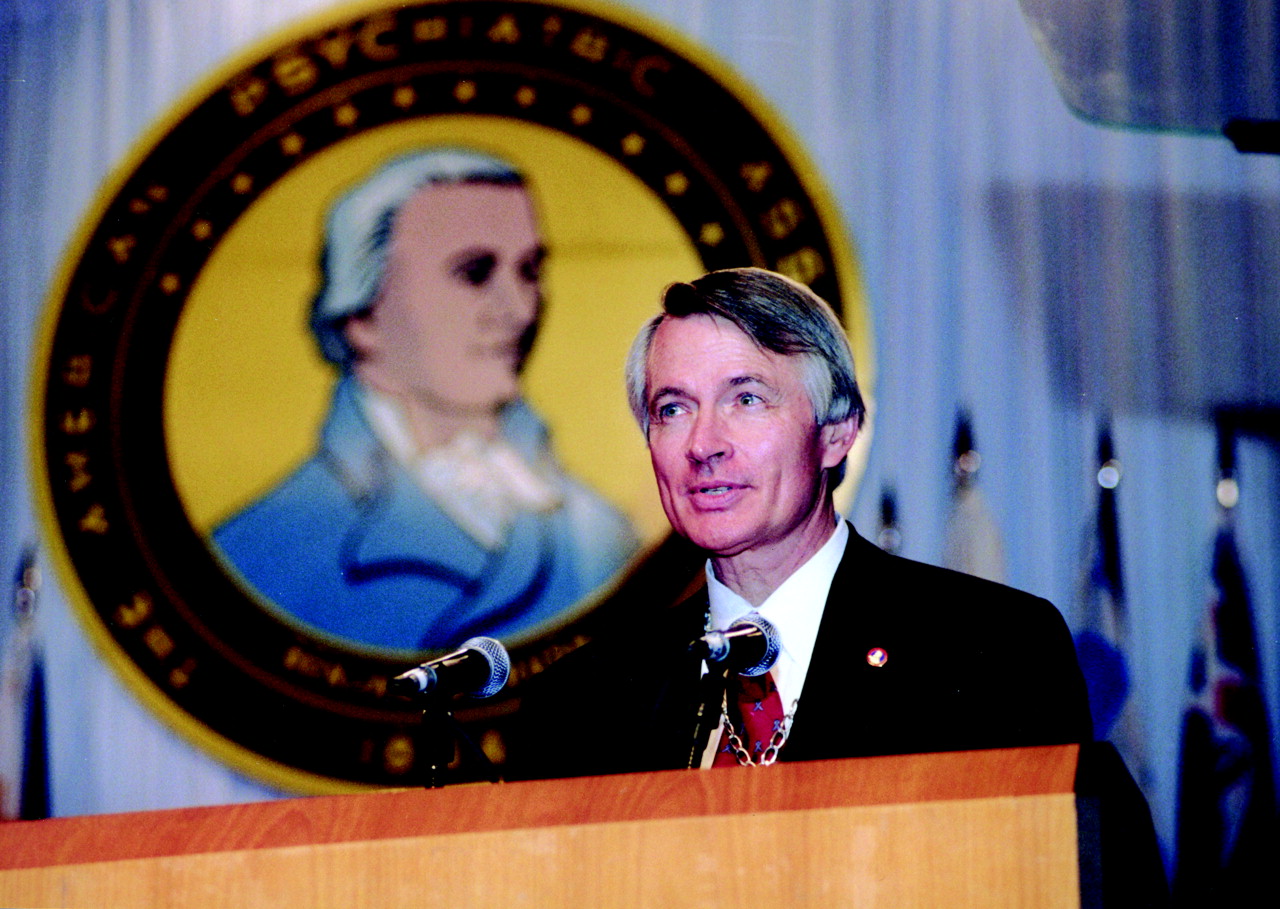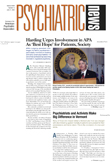APA President Richard Harding, M.D., called on his fellow APA members to move beyond focusing on the common frustrations that accompany the day-to-day practice of psychiatry and do the right thing for their patients—become involved in their professional association and thereby help to achieve changes that will result in equitable access to high-quality psychiatric care in this country.
Harding, who stepped down as president of APA at the conclusion of the 2002 annual meeting in Philadelphia last month, conveyed this message in his presidential address at the meeting’s Opening Session.
“Let us rededicate ourselves to active and constructive involvement in our professional association. It is our duty and our best hope for effective action in the halls of government and regulatory bodies, and, more importantly, it is our best hope for helping our patients and society. As APA continues strong, so shall we.”
His comments concluded an emotional look back at the difficult year that psychiatry had just come through while also communicating that the ability to not only survive but also persevere is testament to the field’s proud history.
“In four months, our nation will pause to look back on the events of September 11, 2001,” said Harding to about 1,200 APA members and their guests in the Pennsylvania Convention Center. “We will mourn for the thousands who perished in the clear morning air from that withering assault. While it is necessary and proper that we mourn, we also will celebrate the resilience of our country and the heroism of our countrymen, our firefighters, our rescue workers, our police, and yes—our psychiatric colleagues. In this audience are APA members from district branches in New York, the Washington area, New Jersey, Connecticut, Pennsylvania, and the uniformed services. In these and other places, our members rose to the occasion, stood, and delivered the care necessary to begin the process of healing that each of our patients and the public’s health will require.”
Also part of the psychiatric response to the terrorist attacks, he said, was the APA staff. Despite the day’s turmoil and the proximity of APA headquarters to the White House and Capitol, many staff stayed at APA headquarters on September 11 to pull together psychiatric information on disasters and trauma and field phone calls from the media, government officials, and the public. In the days after the attacks, when threats of bombings and anthrax contamination abounded, staff continued to commute to downtown D.C. and do their jobs. Harding invited the audience to join him in expressing appreciation to the APA staff.
While it is difficult to conceptualize September 11 as having any positive outcomes associated with it, Harding conceded that their might be one: “The public’s perception of mental illness has changed during this last eight months,” he said.
Many Americans, he observed, will find it hard to dismiss those who have serious and persistent mental illness when they themselves have now experienced temporary depression and anxiety. Moreover, many members of the public now know far more than they once did about mental illness and effective treatments because APA and other related organizations quickly responded to the media’s need for copious amounts of information and interview subjects in the wake of September 11.
So what’s next for psychiatry? How can psychiatry build on these gains and keep the momentum going?
First, Harding said, it falls to the profession of psychiatry to continue taking the lead on an issue on which APA has worked very hard this past year—patient privacy.
“We will win some battles, and we will lose some,” said Harding, who is a member of the federal National Committee on Vital and Health Statistics and its Subcommittee on Privacy and Confidentiality. “But they don’t know whom they are up against. They are up against the power of the doctor-patient relationship and principles of privacy about which Americans feel strong.”
Another challenge for the field is the need for an integrated, high-quality system of public/private health care systems to which those with mental illness have access. He called on psychiatry residents and early career psychiatrists to accept their responsibility as psychiatry’s next generation of leaders.
“As psychiatrists, our ethics are solid, we have a strong commitment to the individual’s and the public’s health, we are in an ideal position to lead. However, being in an ideal position is of little value unless leaders step forward,” said Harding.
“My esteemed colleagues, you are being summoned by history to address the complex problems facing psychiatrists and people with mental illness and substance abuse disorders in the 21st century, [but] you are not alone. Look around this hall and on this stage. There is world-class expertise, there are mentors, there are skilled media experts, there are medical politicians, educators, researchers, and gifted clinicians to help and advise you—joined together in the American Psychiatric Association. Both young and senior members, you are the caretakers of our identity and our professionalism in this consumer society in which we live.”
Harding was not exhorting his colleagues to do anything that he himself has not done. As R. Dale Walker, M.D., noted in introducing Harding at the Opening Session, Harding comes from a family with a long history of public and medical service. He is one of 27 physicians, including 13 psychiatrists, in four generations. His great-grandfather, a rural doctor, was also a Civil War veteran, and his great-grandmother, a women’s doctor, were the parents of the 29th president of the United States. His daughter is a social worker in a hospice program in Winston-Salem, N.C., and his son is a U.S. Army Scout platoon officer now serving in Afghanistan. ▪

